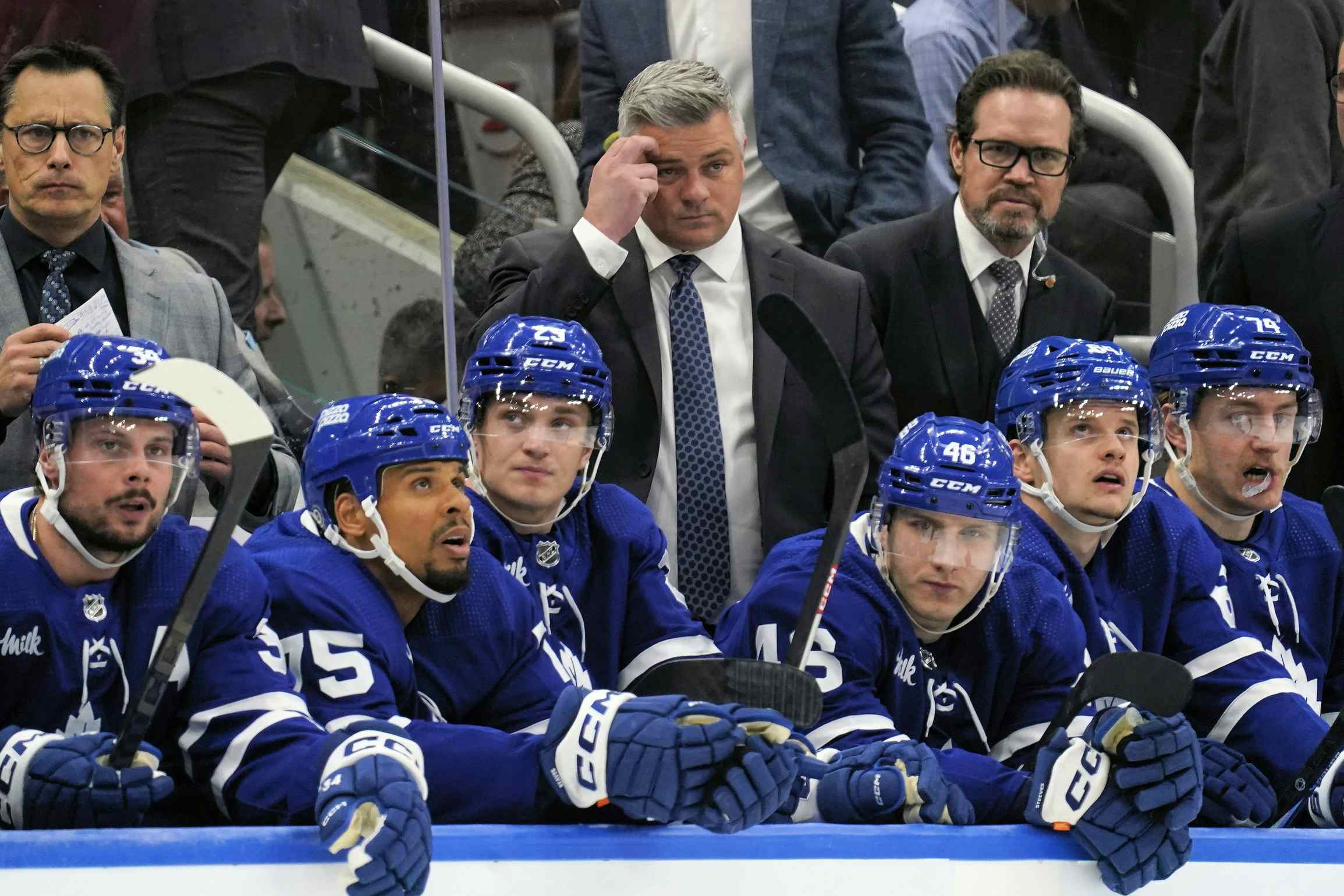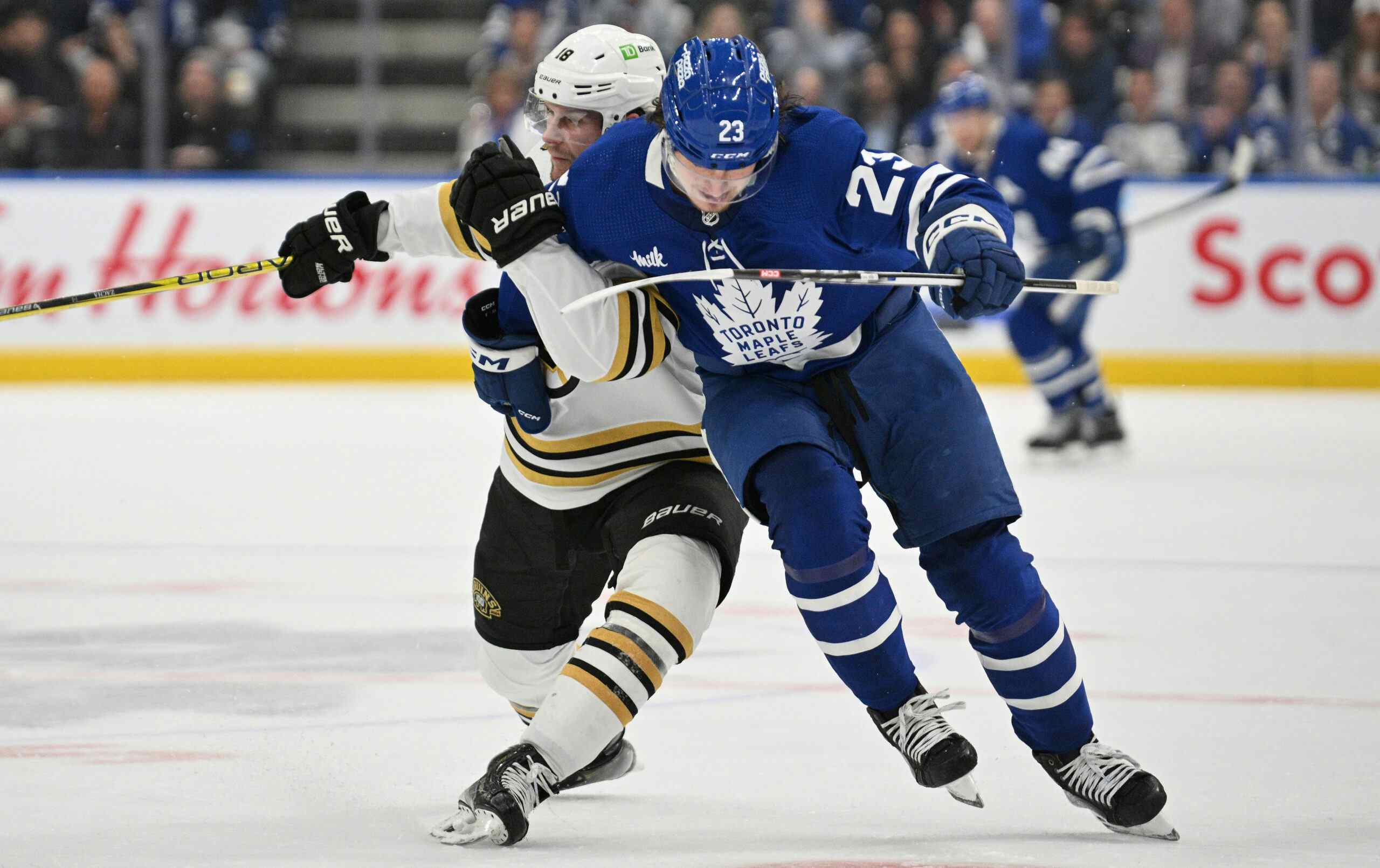Mike Babcock isn’t going to change his goaltender usage anytime soon

By Jon Steitzer
4 years agoOne of the most common criticism’s of Mike Babcock is that he doesn’t care what analytics have to say and he’s going to do what he thinks is right. (This is a criticism of pretty much every coach in the league by the way, but we’re focusing on Babcock for now.) That’s why it seems odd that when Babcock cites somewhat sound math, we disagree with his philosophy on goaltender splits in back to backs.
TSN asked Mike Babcock about the goaltender usage today, and you can get his full reply here, and Leafs players offering up hockey cliches, but if you’re more the reading type, the money quote is below, along with my takes that you never really ask for, but are going to get stuck reading if you like them or not.
“Can you imagine if you lost game one, then you went to game two tired, i dunno, that investment makes no sense to me what so ever.”
So this is certainly a valid opinion. A rested team with their best goaltender is going to play better than a tired team with their best goaltender and their rested team with their backup goaltender. It doesn’t take a genius to know that, and certainly against a team like Columbus the Leafs have a great shot at beating them with all their ducks in a row. Similarly, an unrested Leafs team playing against Boston isn’t going to do so well no matter who is in net, and the best case for the Leafs might be to go all-in on the Blue Jackets and just hope for the best against the Bruins. This isn’t horrible logic on Babcock’s part, and of all the reasons to take issue with him, this seems like the smallest.
The thing is, when you aren’t following up the Blue Jackets with the Bruins, it starts becoming a murkier philosophy. Let’s look at this weekend when the Leafs unfortunately have another set of back to back games.
The Leafs play against the Sharks (in Toronto) on Friday night and follow that up with a Saturday night game against the Canadiens (in Montreal). Neither the Sharks or the Habs are world beater teams, and there isn’t an easier win available to go all-in on. Does it become better to balance the chances of winning by giving the Leafs a shot to win with their rested lineup and backup goaltender on Friday night and to follow it up with a more tired roster on Saturday with their starter in net?
I don’t have a clear answer for that, but I can say that if you come out of the first game with a loss, how do you feel about your chances in the next game knowing you are fully behind the 8 ball on it?
The argument isn’t being made that either the starter or the backup should be the go to in all situations, rather the case being made by most people seems to be that it needs to be situation.
In this case, there should be comfort in going with the backup goaltender against Columbus. You want your starter to face the best teams to give you your best chance against them and there is a clear difference between Boston and Columbus. When you look at the Sharks or Habs situation, it’s a bit more up in the air, and if you decide that Andersen should get a start in front of a home crowd who paid to see the starter, cool. If you decide that Andersen should start on Saturday night against a historic rival, well guess what, no one is going to blame you for that either.
The issue seems to be with going with a set rule instead of attempting to adjust (or coach).
Other solutions to this problem…
-
Why are we so married to the idea of the starter playing the entirety of the first game. Let’s say the Leafs have a really great first period tonight and are up 4-0. That’s pretty nice, right? Well, they should be able to defend a 4 goal lead the rest of the way, and perhaps you go with Hutchinson for the next couple of periods to have a rested Freddie Andersen for the following night.
- The reason why this has been an issue in the past couple of years and not the previous ones of the Babcock tenure is that the Leafs haven’t had a solid backup goaltender option. Both Hutchinson and Sparks have been sub .900 netminders for the Leafs, and it feels like putting them in is admitted the team plans on losing or requires Toronto to score six goals. The lack of trust in Hutchinson cannot be dismissed here, and that’s a criticism for Dubas over Babcock.
- Home and away splits? Where does Hutchinson give you the best chance of winning? If Hutchinson benefits from Babcock having the defensive matchups he wants on the ice, does that improve Hutchinson’s chances? Does Hutchinson play better away from the pressure of a Toronto crowd? I’m sure I could look up all this and answer these questions, but I’m just trying to make a case for more than looking at one number to rule them all. There should be a lot more that goes into making the decision than one steadfast rule that is ultimately right.
I gave you the optimistic example there first, but the same holds true if the Leafs are getting shelled. If the Leafs are down early and will have to claw their way back into the game, maybe do it on Hutchinson’s watch and give Andersen the net the following night. I like this idea a little less since part of the reason a team is getting shelled could be because their goaltender is already overtired, but all I’m looking for is some level of outside the box thinking.
The main takeaway here isn’t that Mike Babcock is going to play Andersen first on all back to backs, it’s that once again there is no sign of Mike Babcock changing, and that’s what is frustrating to a lot of us. When teams know what he is going to do, they are prepared for it. And at this point I think Babcock is the biggest open book in hockey and that might not be a huge issue in the regular season, but in a seven game series, it seems like a kiss of death.
Recent articles from Jon Steitzer





